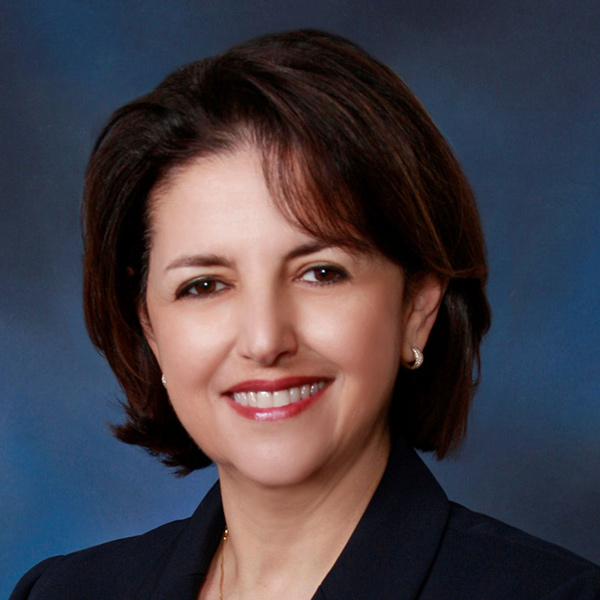Questions:
Vision Correction over 40
Refractive Errors and Laser Vision Correction
The eye receives several topical anesthetic drops prior to initiating the LASIK procedure so there is no pain, however a sensation of pressure around the eye may be felt for few seconds. After the LASIK procedure, most people have few hours of mild irritation. Patients who have PRK or surface ablation, which is recommended for patients who cannot have LASIK, may feel discomfort for a longer period of time (4 to 7 days). This discomfort is well managed with a protective contact lens, topical drops and oral medication.
Both LASIK and PRK take few minutes per eye, however with check in, eye measurements and a post-operative exam, you can expect to be at the laser center for two to three hours on the day of the procedure.
Patients often ask what to expect after LASIK. You should expect a significant improvement of vision and be able to drive and return to work within one to two days after LASIK eye surgery. In the first week or two, you may experience some fluctuation of vision and mild lack of contrast or sharpness and clarity that have not yet returned. This is completely normal. It takes few weeks for the vision to reach its peak, and it will typically stabilize at three months.
Vision fluctuations are common and can be related to dry eyes so we ask that you lubricate the eyes regularly, even if you don’t feel the need for drops.
You may have red spots on the white part of the eye immediately after LASIK. Those spots will fade within two weeks.
Recovery from PRK is slower. Vision will be at a functional level within 5 to 7 days and will slowly improve to stabilize at three months.
A Washington Eye Physicians & Surgeons LASIK specialist is always available to answer your questions. Just call 301-657-5700 or, if it’s after hours, our answering service emergency number is 301-466-2625. Feel free to make a list of questions to ask the doctor at your post-op visits.
While most patients are good candidates for LASIK, you would first need a consultation during which we could evaluate your prescription and cornea to determine if you meet the criteria and can proceed safely. We can still provide good vision for those patients whose prescription is too high by choosing Pho refractive keratotomy (PRK), Intraocular Collamer lens (ICL), or clear lens exchange (CLE).
It’s perfectly natural to be nervous about LASIK, especially if you’re not sure what to expect. Drs. Martin and Adi and their staff spend a great deal of time describing exactly what’s involved in the LASIK procedure including the sounds and sights you will experience. We talk with you throughout the procedure to “walk you through the process” and ensure you are as comfortable as possible.
We also usually prescribe a mild sedative prior to the procedure and play music you enjoy to help you feel more relaxed, but you’re still awake and able to follow instructions during the procedure. Although you can’t actually see what is being done throughout most of the procedure, patients are still aware that someone is near their eyes and this can feel a bit awkward.
We feel strongly that it’s not enough to provide our patients with excellent vision. We want to make your laser eye surgery experience as comfortable and reassuring as possible.
Wavefront-optimized laser treatment is a form of custom LASIK that is superior to traditional LASIK as it reduces night vision complaints and achieves more accurate correction, in many cases better than 20/ 20 vision. It minimizes the induction of higher order aberrations on the cornea. Two people may have the same eyeglass prescription, but no two people have exactly the same wavefront or curvature maps of their cornea.
At Washington Eye, all patients have wavefront optimized treatments and are offered Contoura topography guided treatment which uses the patient’s own customized corneal topography to plan the treatment.
Once your vision stabilizes after LASIK, you should expect to enjoy good vision for a long time. If your prescription is particularly high or you have significant astigmatism, you may require a LASIK touch up (enhancement) within few months of the original procedure. That does not mean that anything went wrong with your initial procedure.
Most eye prescriptions change until the age of 30, so if you have LASIK in your early twenties, you should expect the need for touch up few years later.
As your eyes age, especially after 40, you will observe changes related to aging such as difficulties reading up close and night vision issues. Your doctor can assess the health of your eyes at that point. Also, cataracts can develop as you age and will influence your prescription.
With Washington Eye Physicians and Surgeons Commitment Care Program, we will perform any necessary enhancement free of charge until your vision is satisfactory and stable providing it is medically appropriate. In the unlikely event you do require an enhancement two years or more after you vision correction procedure, we will perform this procedure for a small nominal fee, if such procedure is medically indicated.
Washington Eye Physicians and Surgeons perform laser vision correction at their state-of-the-art Alcon Refractive Suite in Chevy Chase, Maryland.
The Wavelight refractive suite used by Washington Eye Physicians and Surgeons is the fastest refractive platform available in the US.
The Wavelight EX 500 is the only laser to operate at 500 Hz, making treatment time much shorter with superior ability to track eye movement. The average treatment time is approximately 1.4 seconds per diopter of prescription. This is advantageous it reduces the potential patient fixation fatigue and dehydration of the cornea during treatment.
The Wavelight FS200 Femtosecond laser is the fastest femtosecond laser available in the US with standard flap creation time of approximately 6 seconds.
Yes. In general, potential mechanical problems which can occur in LASIK can be observed at the time of the procedure. This why, in most cases, when LASIK on the first eye goes perfectly, we feel confident treating the second eye on the same day. However, if the first eye proceeds less than perfectly, we will defer the second eye until the first one heals.
Yes. You can have an enhancement of the LASIK after the initial procedure if you have residual prescription provided it is still medically safe. PRK can also be done years later and sometimes even after cataract surgery if indicated. Note that as you age your eyes do change, especially as you develop a cataract, and having another LASIK procedure at that point is not recommended. Cataract surgery may address vision correction issues at that point.
LASIK is a surgical procedure. It is safe and most patients achieve excellent results. Serious complications are uncommon. Infections from LASIK are possible and rare but much less than contact lens related infections. Intra operatively, LASIK flaps may be imperfect and require postponing the procedure. Postoperatively, trauma to the eye, including eye rubbing, especially while the eye is healing can displace the flap and will require repositioning. Inflammation can be severe and require more intense and longer medical treatment. Occasionally, some epithelial cells on the surface of the eye will grow under the flap and cause problems specially after enhancement procedures, which is addressed by lifting the flap and cleaning the errant cells. Dry eyes can be common after LASIK but usually short lived. In general, patients with significant dry eyes preoperatively will likely be steered toward PRK instead.
The risk of retinal detachment is not related to LASIK, rather related to nearsightedness. LASIK does not increase the risk of retinal detachment.
If your pupil is larger than average, you may already see halos at night. Some patients experience increased halos around lights and some starburst effect for several weeks to months after the procedure. Custom laser treatments have shown to greatly reduce these issues.
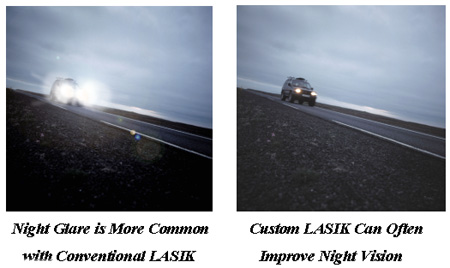
From published studies and our experience, it is clear that surgeon experience and skill are critical in laser vision correction and there is no truth to the myth that “the laser does all the work in LASIK.” Risks of complications appear to be greatly reduced by the surgeon’s experience, training and meticulous attention to detail.
Washington Eye Physicians & Surgeons laser vision correction surgeons, Drs. Adi and Martin are all fellowship-trained corneal specialists, and laser vision correction is corneal surgery. Drs. Martin and Adi’s experience and surgical skills are well known in the Washington area, nationally and internationally. They initially became involved in the treatment of excimer laser patients in 1997 and have dedicated much of their practice to vision correction for their patients. They have helped co-managing eye-doctors through proctoring, lectures and scientific articles and book chapters they have published. Because of their experience, hundreds of doctors, eye doctors, surgeons and other health care workers have trusted their eyes to our laser vision correction team.
Many of our patients have heard that astigmatism can’t be treated with the laser, however, treatment of astigmatism was FDA approved in 1997 and the results of our treatments of patients with astigmatism have been excellent, especially with custom wavefront-optimized and Contoura topography-guided LASIK.
If you were referred to us by your regular eye doctor, he or she will generally continue to care for you after surgery. Please be sure to discuss this with us. All of the doctors in our office are experienced in caring for patients after LASIK. Of course, if any problem or question arises, your LASIK surgeon will be available to see you.
Please call 301-657-5700 to speak to a LASIK coordinator about pricing. Keep in mind, the price for LASIK includes the preoperative evaluation, the procedure and all post-operative care for a year. Through Washington Eye Physicians & Surgeons Commitment of Care Program it may also include additional procedures, which you and your doctor feel might be appropriate to improve your distance vision (as medically possible) until your vision is stable and satisfactory. If you compare the cost of LASIK to the cost of wearing soft contact lenses, especially those for astigmatism, laser vision correction can often cost less than wearing soft contacts for about 10 years. At the end of 10 years of contact lens wear, you’re still back where you started with poor distance vision. In some ways, it’s like “renting” instead of “owning” your clear vision.
Insurance generally does not cover LASIK. Probably the best way to pay for laser vision correction is with a medical savings plan. If you have a medical savings plan through your work, you can place pre-tax dollars in the plan to be used for laser vision correction the following year. This can save a great deal of money in taxes and make laser vision correction even more affordable. Learn more about LASIK cost and financing.
After age 40, people gradually lose the ability to clearly see near objects. This condition is called presbyopia and results from loss of flexibility of the lens inside the eye and other age-related changes. This change occurs gradually throughout life but is generally not noticeable until the mid-forties. Near vision is the vision we use to apply makeup, read a watch or cell phone and do computer work, and reading glasses can help.
If you are nearsighted and also presbyopic, you can use your nearsightedness to your advantage by removing your glasses or contact lenses to see up close. Laser vision correction after 40 will correct your eyes for distance as they were with glasses or contacts so you will need reading glasses. You cannot take off your glasses to read any longer! To decrease the need for reading glasses, the technique of creating monovision may be helpful.
Creating monovision with laser vision correction can reduce dependence on glasses after 40. With monovision the LASIK surgeon fully treats one eye (usually the dominant eye) for distance and the other eye for near vision. This leaves one eye slightly nearsighted and that eye gives up some distance clarity/sharpness. A weak pair of glasses may be helpful at times for night driving and near vision glasses may be needed. Monovision is not for everyone and may be hard to adapt to. It will slightly affect depth perception.
Monovision can be tried in the doctor’s office or can be tried by altering you contact lens prescription in one eye. This can be discussed at your consultation.
No.
Cataracts are related to aging and will develop over time. Laser vision correction will change the curvature of the cornea and will influence the manner in which calculations are made for future intraocular lens implantation at the time of cataract surgery.
Glaucoma is caused by optic nerve damage as a result of a painless elevation intraocular pressure. Some types of glaucoma can even occur at low pressure. You should continue to have regular eye exam and inform your eye care provider that you have had laser vision correction so the doctor takes that into account when interpreting your eye pressure.
Hard and rigid contact lenses will alter the shape of the cornea overtime. You will need to discontinue wearing them for a minimum of 4 to 6 weeks and sometimes up to 10 weeks until your corneal shape and vision stabilizes. During this period of corneal rehabilitation, you have the option of being fitted with a soft contact lens.
Refraction is the term used to describe the way light is focused by your eye, and it depends on three elements: the corneal curvature, the power of the natural lens inside the eye, and the length of the eye. When these elements are correctly proportioned, light is properly focused on your retina and vision is clear. If not, as in the case for a large percentage the world population, then one is said to have a refractive error. There are four types of refractive errors that can be corrected with laser eye surgery: myopia (nearsightedness), hyperopia (farsightedness), astigmatism, and presbyopia.
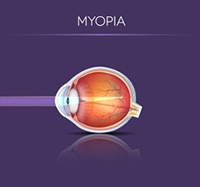 What is myopia or nearsightedness, and can LASIK fix it?
What is myopia or nearsightedness, and can LASIK fix it?In a myopic or nearsighted eye, light passing through the eye falls in front of the retina due to excessive curvature of the cornea or because the eye is too long. As a result, distance objects are blurred but near vision is clear without glasses.
During laser eye surgery, the excimer laser reshapes (flattens) the cornea in a nearsighted eye so the incoming light will focus on the retina.
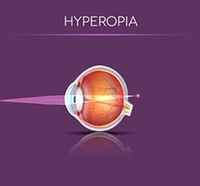
In a hyperopic or farsighted eye, light passing through the cornea falls behind the retina because the cornea does not have enough of a curve to properly bend the light, or the eye is too short. People with hyperopia are better able to see far away objects than close. However, if hyperopia is significant it will affect clarity at distance and near.
During laser eye surgery, the excimer laser can be used to reshape (steepen) the cornea of a hyperopic eye to allow the light to focus on the retina.

Astigmatism is an imperfection in the curvature of the cornea. Normally the cornea and lens are smooth and curved equally in all directions much like a soccer ball. If the cornea is not smooth or evenly curved, much like an American football, the light rays are not refracted (bent) properly and equally. This results in distorted vision at near and far distances. Astigmatism can exist with other refractive errors such as myopic and hyperopia.
When the cornea has an irregular shape of curvature, you have corneal astigmatism. When the shape your natural lens is distorted, you have lenticular astigmatism.
During laser eye surgery, the excimer laser can reshape the cornea to offset your astigmatism and this can be done in conjunction with treatment of any other refractive error.
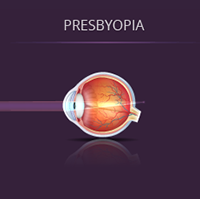
Presbyopia comes from the Greek word “old eye.” It is a normal part of aging when the eye gradually loses the ability to see things clearly up close.
There is no effective excimer laser treatment for presbyopia, however monovision (described above) is a good alternative to reduce dependence on reading glasses.
If you have additional questions, please schedule a free LASIK consultation to learn more and find out if laser eye surgery is right for you.
Request a Free LASIK Consultation© 2024 Washington Eye Physicians & Surgeons
The material contained on this site is for informational purposes only and is not intended to be a substitute for professional medical advice, diagnosis, or treatment. Always seek the advice of your physician or other qualified health care provider.
